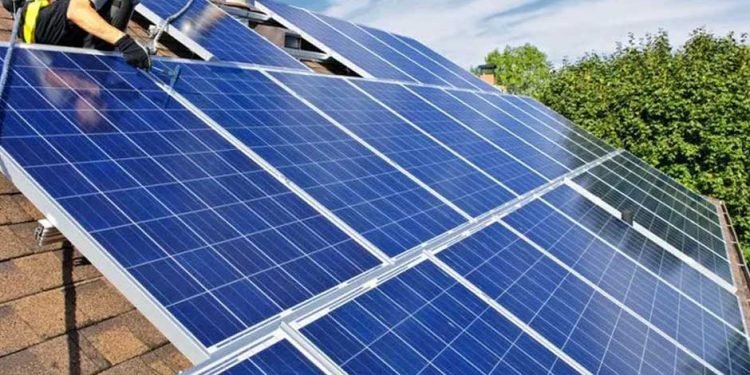Solar panels have emerged as a revolutionary solution to harnessing the abundant and clean energy provided by the sun. As concerns over climate change and the need for sustainable power sources continue to grow, solar panels have become increasingly popular for generating electricity. These devices, composed of photovoltaic cells, convert sunlight into usable energy through a process known as the photovoltaic effect. By capturing the sun’s rays and transforming them into electricity, solar panels play a pivotal role in the renewable energy sector. In this article, we will explore the intricate working of solar panels and delve into their significance in meeting the world’s energy demands. Additionally, we will highlight the benefits of relying on a trusted solar company to ensure the efficient installation and operation of these environmentally friendly power systems.
How Do Solar Panels Work?
Solar panels harness the power of sunlight to generate electricity through a process known as the photovoltaic effect. This effect occurs when photons, which are particles of light, strike the surface of a solar panel’s photovoltaic cells. The cells, typically made of silicon, absorb the photons and release electrons from their atoms, generating an electric current. This direct current (DC) is then converted into alternating current (AC) through an inverter, making it suitable for use in homes, businesses, and the electrical grid.
The Components of a Solar Panel System
A solar panel system consists of several components working together to generate electricity efficiently:
- Solar panels: The most prominent component of the system, solar panels, are made up of individual photovoltaic cells connected in series. They are typically mounted on rooftops or open spaces to capture sunlight effectively.
- Inverter: Solar panels generate DC electricity, but most electrical devices and the grid operate on AC. Inverters convert the DC electricity into AC, making it compatible with standard electrical systems.
- Racking and mounting: Solar panels need a secure and stable structure to hold them in place. Racking and mounting systems ensure panels are safely installed on rooftops or the ground.
- Batteries (optional): For off-grid installations or areas with unreliable power supply, energy storage systems, such as batteries, can store excess electricity generated during the day for use at night or during periods of low sunlight.
- Monitoring system: Solar panel systems often include monitoring equipment that tracks the performance of the panels, providing data on energy production and system health.
Advantages of Solar Panels
Solar panels offer numerous advantages in the generation of electricity:
- Renewable and abundant: The sun is an infinite source of energy, ensuring a constant supply of electricity as long as sunlight is available. With abundant solar resources, countries worldwide can tap into this renewable source to reduce reliance on fossil fuels.
- Environmentally friendly: Solar power is a clean energy solution that produces minimal greenhouse gas emissions compared to conventional fossil fuel-based power plants. Harnessing solar energy helps combat climate change and reduce air pollution, benefiting both the environment and public health.
- Reduced energy costs: Installing solar panels allows homeowners and businesses to generate their electricity, resulting in reduced dependence on utility companies. Over time, this can lead to significant savings on energy bills.
- Energy independence: Solar panels provide energy independence, particularly in remote areas with limited access to the power grid. By generating their electricity, individuals, and communities can rely on a sustainable and independent source of electricity.
Impact on the Energy Landscape
- Renewable energy transition: Solar panels play a crucial role in the global shift towards renewable energy sources. As governments and organizations prioritize reducing carbon emissions, solar power installations are rapidly increasing, diversifying the energy mix and reducing reliance on fossil fuels.
- Job creation and economic growth: The growing solar industry has created numerous job opportunities across the globe. Solar panel manufacturing, installation, and maintenance require a skilled workforce, contributing to local economies and driving economic growth.
- Distributed generation: Solar panels enable distributed generation, wherein electricity is generated closer to the point of consumption. This reduces transmission and distribution losses, making the energy system more efficient and resilient.
- Community solar initiatives: Solar panel installations can also facilitate community-based projects, allowing multiple individuals or organizations to invest in and benefit from a shared solar array. Such initiatives promote cooperation, lower costs, and expand access to renewable energy.
Solar panels play a vital role in the generation of electricity by harnessing the sun’s energy and converting it into usable electricity. With their numerous advantages, including environmental sustainability, reduced energy costs, and energy independence, solar panels are driving the transition to a cleaner and more sustainable energy future. As the solar industry continues to grow, it is poised to make a significant impact on the energy landscape, promoting renewable energy adoption, job creation, and economic growth worldwide.












